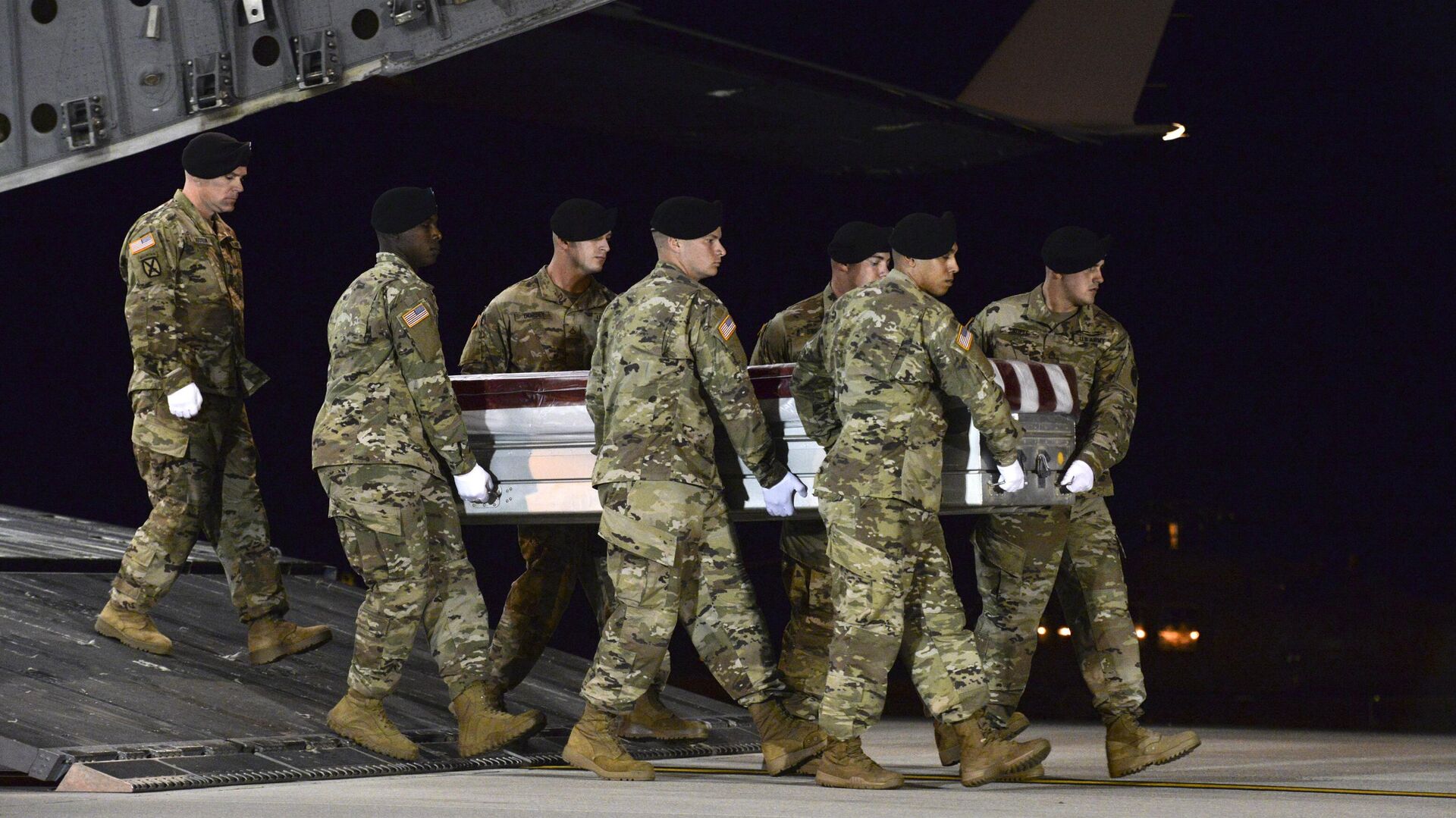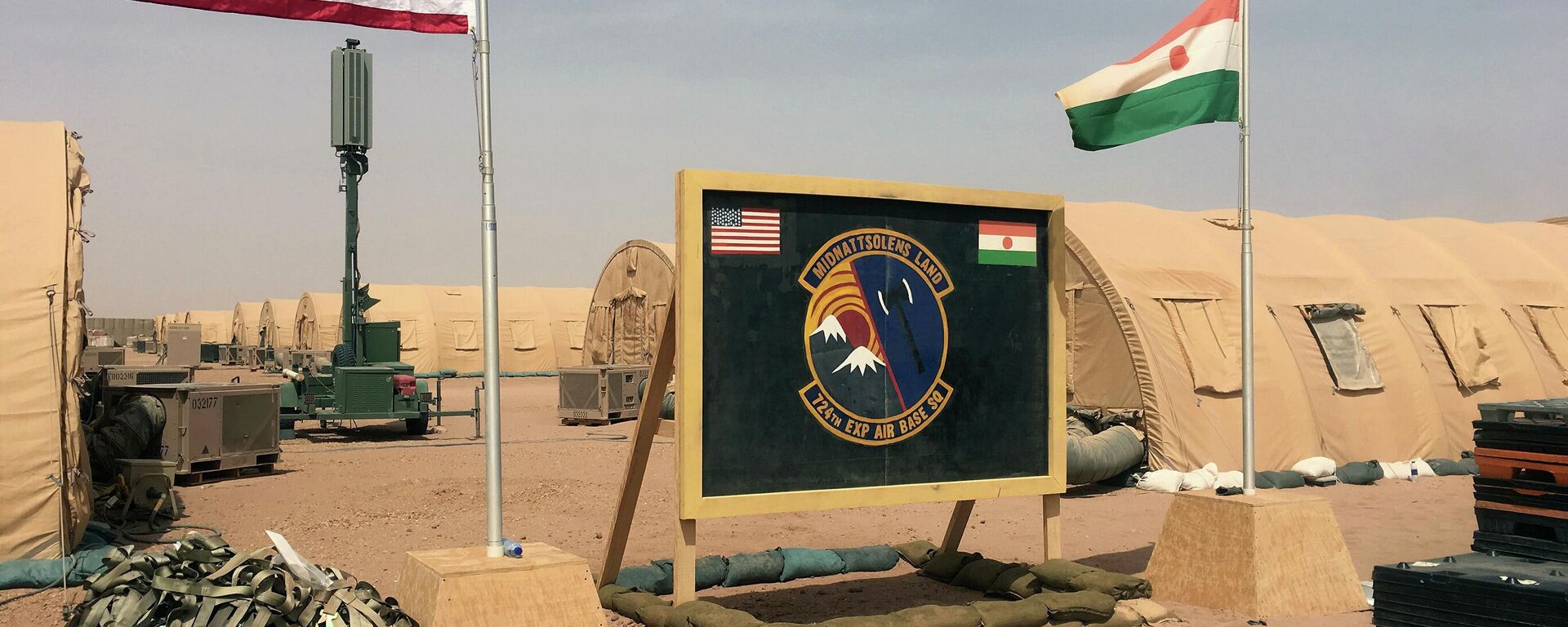https://en.sputniknews.africa/20230908/us-may-cut-military-presence-in-niger-by-nearly-half-amid-coup-reports-1061975702.html
US May Cut Military Presence in Niger by Nearly Half Amid Coup: Reports
US May Cut Military Presence in Niger by Nearly Half Amid Coup: Reports
Sputnik Africa
WASHINGTON (Sputnik) – A coup took place in Niger on July 26. The President Bazoum was ousted and detained by his own guard, Gen. Tchiani. Following the coup... 08.09.2023, Sputnik Africa
2023-09-08T18:56+0200
2023-09-08T18:56+0200
2023-09-08T18:56+0200
situation in niger after military coup
united states (us)
niger
pentagon (us department of defense)
mohamed bazoum
abdourahamane tiani
economic community of west african states (ecowas)
france
https://cdn1.img.sputniknews.africa/img/07e7/09/08/1061975277_0:146:3114:1897_1920x0_80_0_0_15965fc0228144807dcc557b6301e023.jpg
The United States is preparing to possibly reduce its military presence in Niger by nearly a half amid the ongoing coup, media reported on Friday citing two US defense officials familiar with the matter. The report said the number of US troops in Niger could be reduced to 500, but no final decision has been made. The US currently has some 1,100 military personnel in Niger, according to the Pentagon. The US, the report said, wants to have enough American forces remain in Niger to be able to conduct counterterrorism operations. On Thursday, Pentagon spokesperson Sabrina Singh said US troops have been moving from an airbase in Niamey to another airbase in Agadez, although a small troop presence will remain in the capital of Niger. Singh emphasized that there was currently no threat to US personnel in Niger and that the repositioning of troops was simply a precaution.In late July, Niger's military ousted President Mohamed Bazoum, closed the country's borders, and imposed a nationwide curfew, which was later lifted in August. The commander of the presidential guard, Gen. Abdurahmane Tchiani, was appointed head of the so-called National Council for the Safeguard of the Homeland (CNSP).
https://en.sputniknews.africa/20230908/us-repositioning-troops-in-niger-from-one-airbase-to-another-pentagon-1061952625.html
united states (us)
niger
france
Sputnik Africa
feedback@sputniknews.com
+74956456601
MIA „Rossiya Segodnya“
2023
Sputnik Africa
feedback@sputniknews.com
+74956456601
MIA „Rossiya Segodnya“
News
en_EN
Sputnik Africa
feedback@sputniknews.com
+74956456601
MIA „Rossiya Segodnya“
Sputnik Africa
feedback@sputniknews.com
+74956456601
MIA „Rossiya Segodnya“
united states (us), niger, pentagon (us department of defense), mohamed bazoum, abdourahamane tiani, economic community of west african states (ecowas), france
united states (us), niger, pentagon (us department of defense), mohamed bazoum, abdourahamane tiani, economic community of west african states (ecowas), france
US May Cut Military Presence in Niger by Nearly Half Amid Coup: Reports
WASHINGTON (Sputnik) – A coup took place in Niger on July 26. The President Bazoum was ousted and detained by his own guard, Gen. Tchiani. Following the coup, ECOWAS suspended all cooperation with Niger and threatened a military intervention if the military did not reinstate Bazoum.
The United States is preparing to possibly reduce its military presence in Niger by nearly a half amid the ongoing coup, media reported on Friday citing two US defense officials familiar with the matter.
The report said the number of US troops in Niger could be reduced to 500, but no final decision has been made.
The US currently has some 1,100 military personnel in
Niger, according to the Pentagon.
The US, the report said, wants to have enough American forces remain in Niger to be able to conduct counterterrorism operations.
On Thursday, Pentagon spokesperson Sabrina Singh said US troops have been moving from an airbase in
Niamey to another airbase in Agadez, although a small troop presence will remain in the capital of Niger.
Singh emphasized that there was currently no threat to US personnel in Niger and that the repositioning of troops was simply a precaution.
In late July,
Niger's military ousted President Mohamed Bazoum, closed the country's borders, and imposed a nationwide curfew, which was later lifted in August. The commander of the presidential guard, Gen. Abdurahmane Tchiani, was appointed head of the so-called National Council for the Safeguard of the Homeland (CNSP).


